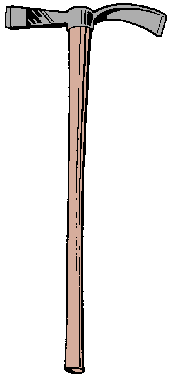.
A very funky story. This seems to me to be the only fiction or fantasy piece we have read and it does not disappoint on the crazy factor. Honestly, I would not be surprised to find out the author wrote this based on a crazy dream or drug induced hallucination. However, the story was plain enough to enjoy and understand. The creativity was praiseworthy. I find the lack of desire to be with his family (compared to the desire to adventure, sail, and make money) saddening. But, at least the ending satisfied this.
 This is an image of Wapping, though it probably did not look like this at the time of publication.
This is an image of Wapping, though it probably did not look like this at the time of publication.


